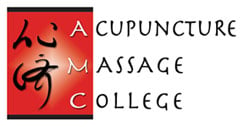LESS ADDICTIVE SLEEPING PILL MAY CAUSE FEWER SIDE EFFECTS
Researchers at The Johns Hopkins School of Medicine, Baltimore note in a recent study that a new sleeping pill, Rozerem (known generically as ramelteon), approved last year for insomnia treatment does not appear to have any characteristics that might cause dependence. Acting in a similar way to the natural sleep-inducing hormone melatonin, ramelteon may be less addictive and have fewer side effects by working through a different pathway in the brain involving melatonin receptors.
Dr. Roland Griffiths and colleagues conducted the study involving 14 patients with a history of sedative abuse, over a period of 18 days in a residential research unit. In random order and on different days, the participants received three different doses of ramelteon, three different doses of the sedative triazolam, or a placebo. Motion control and cognitive performance measures were taken to determine medication effects, including psychomotor and memory tests and a standing balance task. Ramelteon had no significant effects on cognition or movement control and no apparent potential for abuse, according to the report findings. The study appears in the October issue of the journal Archives of General Psychiatry.
“Ramelteon represents a useful alternative to existing insomnia medications that could have broad appeal to patients who are otherwise reluctant to use such compounds,” Griffiths concluded. About 10 to 15 percent of adults regularly experience chronic insomnia, according to the study. Pharmacists filled 43 million prescriptions for sleep drugs in 2005.
Traditional Chinese Medicine views almost all sleep disorders as originating from either a deficiency or an excess of qi in body organs, primarily the kidneys and heart. Chinese herbal medicine can be effective for both long-term chronic and transient insomnia.
Jing herbal tonics may be used to strengthen the kidneys. For chronic insomnia the Chinese herbal remedy ‘six-flavored tea’ (Liu wei di huang wan) may be effective in rebalancing the sleep-wake cycle. Chinese herbal insomnia remedies can be tailored to treat individual symptoms. Herbs for insomnia commonly prescribed may include sour jujube seed, golden thread, longan fruit, fossil bone, mimosa bark, or polygonum vine.
Shen formulas or tonics for the heart and digestive system can also be effective in treating insomnia. Several formula base foundations include the Chinese healing herb biota, (bai zi ren). Biota seeds have a sedative effect. When used as a formula component, it relieves fatigue and stress. Another common formula that contains biota is ginseng and zizyphus (tian wang bu xin dan). This formula treats anxiety-induced insomnia, disruptions to the sleep-wake cycle caused by restlessness and disturbed sleep patterns such as frequent nocturnal awakenings.
"Written by Rev. Dr. Richard Browne
http://www.amcollege.edu

 (305) 595-9500
(305) 595-9500






